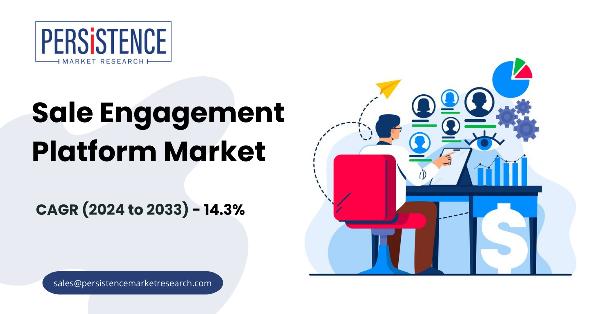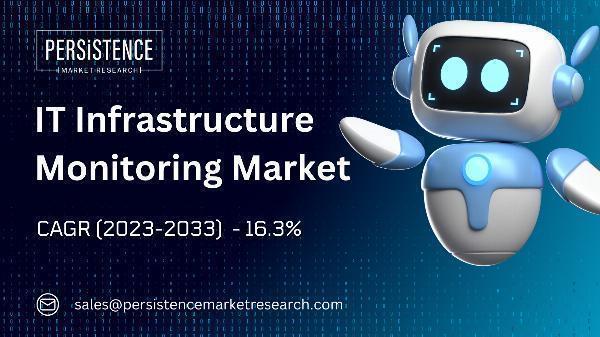The Definitive Guide to Sales Engagement Platforms Market

Strong 8k brings an ultra-HD IPTV experience to your living room and your pocket.
About the Market
The global sales engagement platform market has demonstrated remarkable growth, reaching US$ 8.99 billion in 2024, and is projected to expand to US$ 29.62 billion by 2033, driven by a robust CAGR of 14.3%, according to Persistence Market Research. These platforms are essential for enhancing communication with prospective customers and increasing sales efficiency by centralizing and automating various sales activities such as prospecting, lead nurturing, customer outreach, and sales analytics. They integrate with CRM systems and other sales tools, providing a unified experience that helps sales teams prioritize efforts and improve outcomes. The market, which held a 20.1% share of the global CRM market in 2023, saw North America leading with a 26.9% share in 2022, followed by Europe at 19.5%. India is forecasted to grow at a CAGR of 17.2%, driven by the rise of remote work, while the BFSI sector is expected to grow at 17% CAGR due to increasing demand for sales engagement solutions. However, challenges such as data privacy and security remain significant, necessitating robust measures to comply with regulations like GDPR and maintain customer trust.
Introduction: Understanding Sales Engagement Platforms
In today's fast-paced business environment, Sales Engagement Platforms (SEPs) have become indispensable tools for sales teams. These platforms streamline and optimize the sales process, allowing for better management of customer relationships, automation of repetitive tasks, and insightful data analytics. This guide explores the dynamics of the SEP market, its growth drivers, key players, and future trends, providing a comprehensive understanding of this rapidly evolving sector.
Key Drivers of SEP Market Growth
Several factors contribute to the robust growth of the SEP market:
Digital Transformation: The global shift towards digital business operations has increased the demand for SEPs. Companies are leveraging these platforms to enhance their digital sales processes, improve customer engagement, and stay competitive.
Remote and Hybrid Work Models: The COVID-19 pandemic has accelerated the adoption of remote and hybrid work models, making SEPs crucial for maintaining productivity and collaboration among dispersed sales teams.
AI and Data Analytics: The integration of artificial intelligence (AI) and data analytics into SEPs has transformed the sales landscape. AI-driven insights enable sales teams to identify high-potential leads, personalize outreach, and make data-driven decisions.
Startup and SME Adoption: The growing number of startups and small and medium enterprises (SMEs) are turning to SEPs for their affordability and scalability. These platforms offer essential features like sales automation, email tracking, and lead management, tailored to the needs of smaller businesses.
Market Segmentation: Tailoring Solutions to Different Needs
The SEP market can be segmented based on business size and industry requirements:
Enterprise SEPs: These platforms cater to large organizations, offering advanced features such as AI-driven analytics, deep CRM integration, and extensive customization options.
SME SEPs: Designed for smaller businesses, these solutions are cost-effective and focus on core functionalities like sales automation, email tracking, and lead management.
Industry-Specific SEPs: Certain industries, such as finance, healthcare, and real estate, require specialized SEPs that address unique sales processes and regulatory requirements.
Leading Players in the SEP Market
Several companies are leading the SEP market with innovative solutions:
Outreach: Renowned for its comprehensive sales engagement capabilities, Outreach offers features like email tracking, task automation, and predictive analytics.
Salesloft: This platform excels in providing actionable insights through AI, enabling sales teams to engage with prospects more effectively.
HubSpot Sales Hub: Popular among SMEs, HubSpot Sales Hub integrates seamlessly with other HubSpot products, offering a cohesive ecosystem for managing sales, marketing, and customer service.
Freshworks: Known for its user-friendly interface and robust features, Freshworks offers a comprehensive SEP that integrates seamlessly with its other business tools.
LeadSquared: This platform provides industry-specific solutions, particularly for education, real estate, and financial services.
Technological Advancements: AI and Automation
Technological advancements are central to the evolution of SEPs. Key technologies driving this growth include:
Artificial Intelligence (AI): AI-powered features such as predictive lead scoring, sentiment analysis, and chatbots enhance customer interactions and sales strategies.
Automation: Automation reduces administrative tasks by handling routine activities like data entry, follow-up emails, and scheduling, freeing up time for sales professionals to focus on building relationships and closing deals.
Integration Capabilities: Modern SEPs are designed to integrate seamlessly with existing CRM systems, marketing automation tools, and other business applications, ensuring a smooth data flow and enhancing sales operations.
Challenges and Solutions in the SEP Market
Despite the promising growth prospects, the SEP market faces several challenges:
Integration Issues: Ensuring seamless integration with existing systems can be complex and resource-intensive, requiring robust IT infrastructure and expertise.
User Adoption: Convincing sales teams to embrace new technologies and change established workflows can be challenging. Comprehensive training and change management strategies are essential for successful adoption.
Data Privacy Concerns: As data privacy regulations become stricter, SEP providers must ensure robust security measures and transparent data handling practices to maintain customer trust and avoid legal repercussions.
Future Trends: The Evolution of SEPs
Several trends are poised to shape the future of the SEP market:
Advanced Analytics: The integration of SEPs with advanced analytics and business intelligence tools will become more prevalent, providing deeper insights into sales performance and customer behavior.
AI Expansion: The use of AI will continue to expand, with more sophisticated algorithms enabling hyper-personalized sales strategies and automated decision-making.
Virtual and Augmented Reality: VR and AR may find applications in SEPs, offering immersive experiences for product demonstrations and virtual meetings.
Regulatory Compliance: Ensuring compliance with data privacy regulations will be a top priority for SEP providers, necessitating robust security measures and transparent data handling practices.
Conclusion: The Future of Sales Engagement
The Sales Engagement Platform market is on a robust growth trajectory, driven by technological advancements, changing work dynamics, and the need for personalized customer interactions. With a projected global CAGR of 14.3% and an impressive 17.2% in India through 2033, SEPs are poised to play an increasingly critical role in driving business success. As companies continue to seek innovative ways to enhance their sales processes, SEPs will remain at the forefront, empowering sales teams to achieve greater efficiency and effectiveness in the digital age.
Note: IndiBlogHub features both user-submitted and editorial content. We do not verify third-party contributions. Read our Disclaimer and Privacy Policyfor details.







